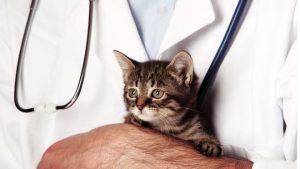Jul 08 2016
Should We Ban Homeopathy for Animals?
 Yes. Yes we should.
Yes. Yes we should.
This is an interesting idea I had not previously considered. Danny Chambers is a UK veterinarian from Devon who started a Change.org petition to ban the veterinary use of homeopathy in the UK. He has 1,000 signatures from UK vets so far (out of the 22,000 total UK vets).
Chambers said:
“We think vets these days should be offering 21st Century medicine,” he told BBC News.
“It’s been shown that homeopathy doesn’t work, so it probably shouldn’t be offered any more even if it is offered with good intentions.”
It is absolutely clear that homeopathy is worthless. This is among the most solid conclusions in all of medical science. First, there is no possible way according to our current understanding of physics, chemistry, and physiology that homeopathic potions can have any biological effect. It’s not just unknown – we have very good reasons to conclude that homeopathy cannot work (follow the link above for more details if you are unfamiliar with these reasons).
Despite this utter lack of plausibility, there have been many clinical trials with homeopathy, and unsurprisingly they have failed to show that homeopathy works for anything. There have now been several thorough systematic reviews of the evidence all concluding that the evidence does not support any effect from any homeopathic potion for any indication.
Any rational and reasonable medical regulatory system would not approve the sale or prescribing of homeopathic potions, licence the practice of homeopathy, pay for homeopathy, or in any way legitimize or support homeopathy. In my opinion, any health care professional who prescribes homeopathy is a quack, and any government that supports or legitimizes homeopathy is failing its citizens.
I have not, however, focused much of my attention on veterinary medicine. I have been aware that human quackery has found its way to vets, some of whom use homeopathy, acupuncture, or other nonsense. This petition raises an interesting question – might ridding veterinary medicine of homeopathy be easier that eradicating it from human medicine?
The veterinary infrastructure is smaller and perhaps more manageable. Also, the patients themselves do not have to be convinced of the science, and cannot demand specific treatments. It is a more ethically straightforward. The vets advocate for the health of their animal patients. Those patients have owners, but those owners cannot force vets to do something which is medically futile or unethical. This dodges much of the exploitation of “health care freedom” to weaken the standard of care.
Perhaps this might be a more favorable arena in which to have this fight. Let’s push for a ban on the veterinary use of homeopathy. We can make the case against homeopathy there, give it a lot of publicity, and if we are successful then we can say, “Hey, do animals have a higher standard of care than humans?”
I don’t know how it will play out, but it’s worth a shot. We should all support Chambers’ petition.
So far, the The Royal College of Veterinary Surgeons, which regulates the veterinary profession, is not responding well. In a statement they recommend “a cautious approach to homeopathy for animals”. They go on to say that:
“Furthermore, homeopathy is currently accepted by society and recognised by UK medicines legislation, and does not, in itself, cause harm to animals. While this is the case, it is difficult to envisage any justification for banning a small number of veterinary surgeons from practising homeopathy.”
No, it is very easy to envisage a justification. Homeopathy is snake oil. It is witchcraft. It cannot work and it does not work. How is that not justification enough?
This is an abject failure of a professional organization. Professional health organizations are supposed to set the standard, to advocate for their patients, and to advocate for high standards of professionalism among their members. The Royal College of Veterinary Surgeons is failing their duty, essentially saying that they will follow public opinion and politics.
Professional organizations are not supposed to follow public opinion and the political path of least resistance. Their manifest purpose is to lead. The very essence of being a professional is that you adhere to a high and specific standard of practice. Kowtowing to public opinion is a failure of professionalism.
Hopefully we can put some public pressure on the Royal College to reconsider their position. Apparently Danny Chambers has a better sense of science and professionalism than does the Royal College.






